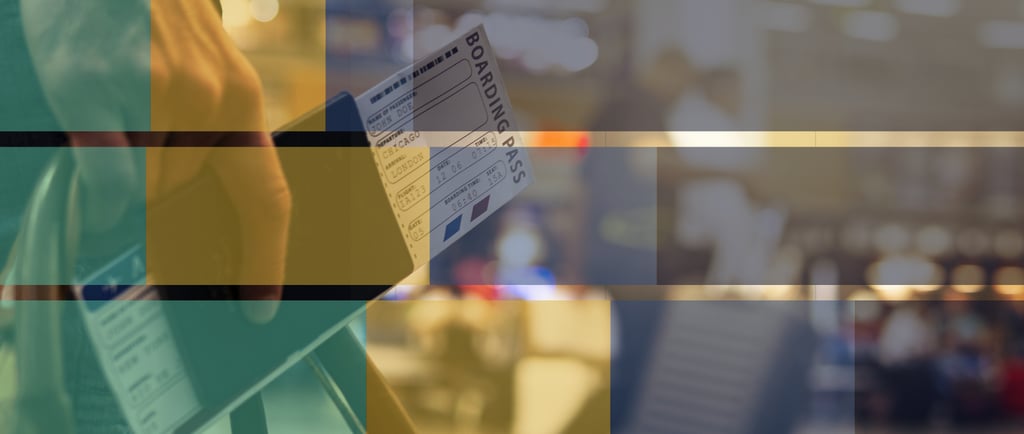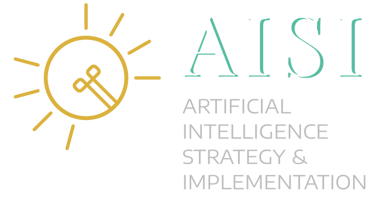50+ Statistics on AI in Travel: A Business Owner's Guide
Discover the future of travel with 50+ key statistics on AI in travel. This listicle provides data-driven insights into how AI travel technology is reshaping marketing, operations, and the customer experience, helping businesses grow.
AI IN HOSPITALITY AND TRAVEL
Garret Farmer-Brent
9/4/2025


The integration of AI is no longer a future trend but a present-day reality for the travel and hospitality industry. This listicle, built on market research from leading publishers, provides a quick, scannable overview of the most important statistics for any business owner looking to implement or upgrade their AI travel technology.
In This Article:
Market Adoption & Growth: Key statistics on the growing market size and adoption rates for AI in travel.
Customer Experience & Personalization: Data on how AI-powered personalization drives consumer engagement and satisfaction.
Customer Service & Self-Service: Stats showing traveler preferences for AI-driven support and automated self-service options.
Marketing & Advertising: Insights into how AI is reshaping ad spending, consumer reach, and engagement metrics.
Operational Efficiency & Revenue: Statistics on how AI travel software is being used to increase revenue and streamline back-end operations.
Consumer Behavior & Trust: Data on traveler attitudes, confidence, and concerns regarding AI in their travel journey.
Booking & Digital Engagement: Statistics on online booking habits, app usage, and digital tool preferences.
Sustainability & Overtourism: The numbers behind AI’s role in addressing environmental and community impact.
Market Adoption & Growth
The global market for AI travel technology is experiencing significant growth. Here are the latest numbers on adoption, revenue, and future projections.
The global AI in tourism market is projected to reach $70.32 billion by 2031. (Openxcell)
The AI in hospitality market is forecasted to grow at a CAGR of 30.1% until 2029. (Research and Markets)
The hospitality AI market grew from $0.15B in 2024 to $0.23B in 2025. (The Business Research Company)
The market is forecasted to reach $1.44 billion by 2029. (The Business Research Company)
North America holds a significant revenue share in the AI in travel market. (Insightace Analytic)
The lodging-accommodation segment held the largest revenue share in 2023. (Openxcell)
Chatbots and travel bots are forecasted to have the highest market growth rate. (Openxcell)
The AI in travel market is forecast to reach $2.9T by 2033. (Mize)
More than 80% of travel companies are hopeful about AI enhancement. (Mize)
Customer Experience & Personalization
AI is at the heart of creating personalized and seamless experiences that today’s travelers demand. These statistics show how AI personalization impacts the customer journey.
74% of hotel executives are interested in AI for tailoring services. (Oracle/Skift)
Behavior-based personalization drives a 142.8% conversion rate. (EMARKETER)
Personalized itineraries are a top reason for using AI travel planning. (Kantar)
AI-powered recommendation engines can increase bookings by 10-25%. (Mize)
45% of consumers with a $50K+ income use AI for personalized experiences. (Mintel)
79% of travellers believe that personalisation is an important aspect of loyalty schemes. (Mintel)
38% of US vacation bookers find AI-generated recommendations helpful. (EMARKETER)
Customer Service & Self-Service
Travelers want high-tech, low-touch service. AI-powered tools are meeting this demand by providing instant, efficient, and accessible support.
AI chatbots handle approximately 80% of customer service interactions. (Mize)
73% of travelers prefer hotels with self-service technology. (Oracle/Skift)
77% of travelers are interested in automated messaging or chatbots. (Oracle/Skift)
86% of US travelers find automated rebooking for delays useful. (EMARKETER)
AI travel technology can reduce customer wait times by 50%. (Mize)
Wyndham's chatbot can validate stays and award loyalty points instantly. (Mintel)
86% of consumers want clarity on whether they are interacting with AI or a human. (Mintel)
Just 12% of travelers would support a full machine takeover. (SiteMinder)
75% of UK consumers find virtual assistants useful for travel queries. (EMARKETER)
Is your travel business ready for the next upgrade to your technology mix – but you don't know where to start?
Marketing & Advertising
AI travel technology is transforming how businesses market to consumers, from ad placement to content creation. These numbers highlight the evolving digital landscape.
Travel media network ad spend is expected to grow at a CAGR of 17.9%. (EMARKETER)
The Travel Media Network market will reach nearly $3B by 2026. (EMARKETER)
Travel has the second-highest Meta ad cost-per-click worldwide. (EMARKETER)
Digital ad spending for travel makes up just 2.5% of the total in 2025. (EMARKETER)
71% of travel leaders believe AI will significantly impact the industry. (Mize)
89% of travel leaders believe AI is essential for customer relationship management. (Mintel)
AI helps travel companies create more relevant social media content. (InteleTravel via Mintel)
AI-driven ad campaigns can predict which audiences are likely to convert. (Mize)
Expedia is testing a feature that turns Instagram reels into bookable journeys. (Mintel)
Operational Efficiency & Revenue
AI's true power lies in its ability to optimize internal processes. These stats show how AI helps reduce costs, predict demand, and increase profitability.
Hotels using AI for revenue management see a revenue uptick of 10%. (Mize)
AI-enhanced revenue management systems can increase RevPAR by 10-15%. (SuperAGI)
The hotel industry can save approximately $800M annually on maintenance costs. (Global News Wire)
AI-driven itinerary optimization can reduce emissions by 10-15%. (MSC Cruises via Mintel)
AI-based dynamic pricing can increase flight occupancy by 2.7%. (Mize)
An AI tool helps analyze customer feedback to gain insights. (Air France via Mintel)
Consumer Behavior & Trust
Understanding how travelers feel about AI is key. These statistics reveal attitudes on trust, data privacy, and the role of AI versus human interaction.
A study shows a noteworthy hesitancy towards AI adoption. (Emerald)
Hesitancy is due to a lack of awareness and understanding. (Emerald)
45% of travelers are aware of greenwashing in the travel industry. (Mintel)
Younger travelers are more willing to try new technologies. (Mintel)
81% of UK travelers like to set a budget for daily holiday spending. (Mintel)
92% of travelers are open to visiting "destination dupes." (Bank of America)
32% of independent travelers avoid packages due to a lack of freedom. (Mintel)
45% of travelers use a digital bank for spending abroad. (Mintel)
72% of under-35s use a digital bank for spending abroad. (Mintel)
Booking & Digital Engagement
The booking journey is becoming increasingly digital. These stats highlight the importance of mobile-first strategies and the tools travelers prefer to use.
Digital travel sales in the US will climb steadily through 2028. (EMARKETER)
US mobile travel app downloads have plateaued. (EMARKETER)
Mobile bookings are rapidly closing the gap with desktop bookings. (EMARKETER)
Mobile car rental bookings reached parity with desktop bookings in 2024. (EMARKETER)
More US travelers use social media apps for planning than travel media sites. (Deloitte)
Hotel bookings are the top travel-related search in early 2025. (Comscore)
49% of passengers prefer bundled fares over a base fare. (Mintel)
56% of holidaymakers are open to smart search over predefined filters. (Mintel)
Sustainability & Overtourism
AI is emerging as a tool for addressing the growing concerns around sustainability and the negative impacts of overtourism.
66% of travelers are open to paying more for a sustainable airline. (Mintel)
70% would pay more for a sustainable accommodation option. (Mintel)
71% of holidaymakers want to see sustainability information before booking. (Mintel)
A ratings scale showing a holiday’s environmental impact interests 30% of travelers. (Mintel)
Overtourism protests have put off 41% of UK holidaymakers from visiting. (Mintel)
86% of travelers want companies to recommend quieter destinations. (Mintel)
Tourism accounts for roughly 8% of total global carbon emissions. (Mintel)
61% of UK adults prefer companies to reduce emissions, not offset them. (Mintel)
78% of 16-34 year-olds are willing to support local community projects. (Mintel)
Begin your AI business upgrade today by taking our comprehensive AI Readiness Assessment.
You'll receive a full business analysis report at no charge.




